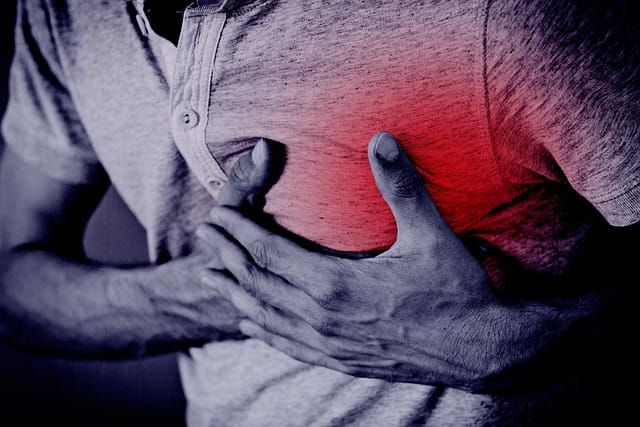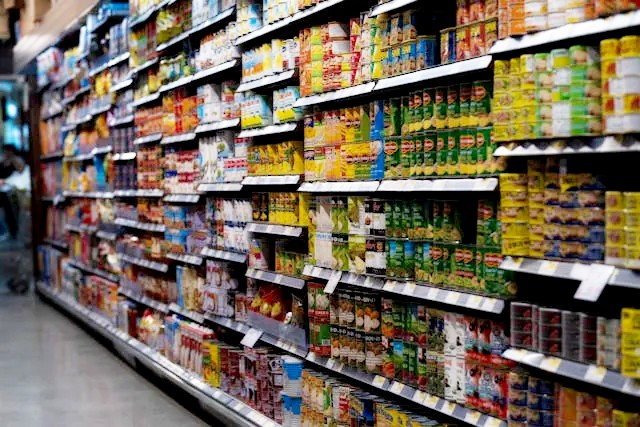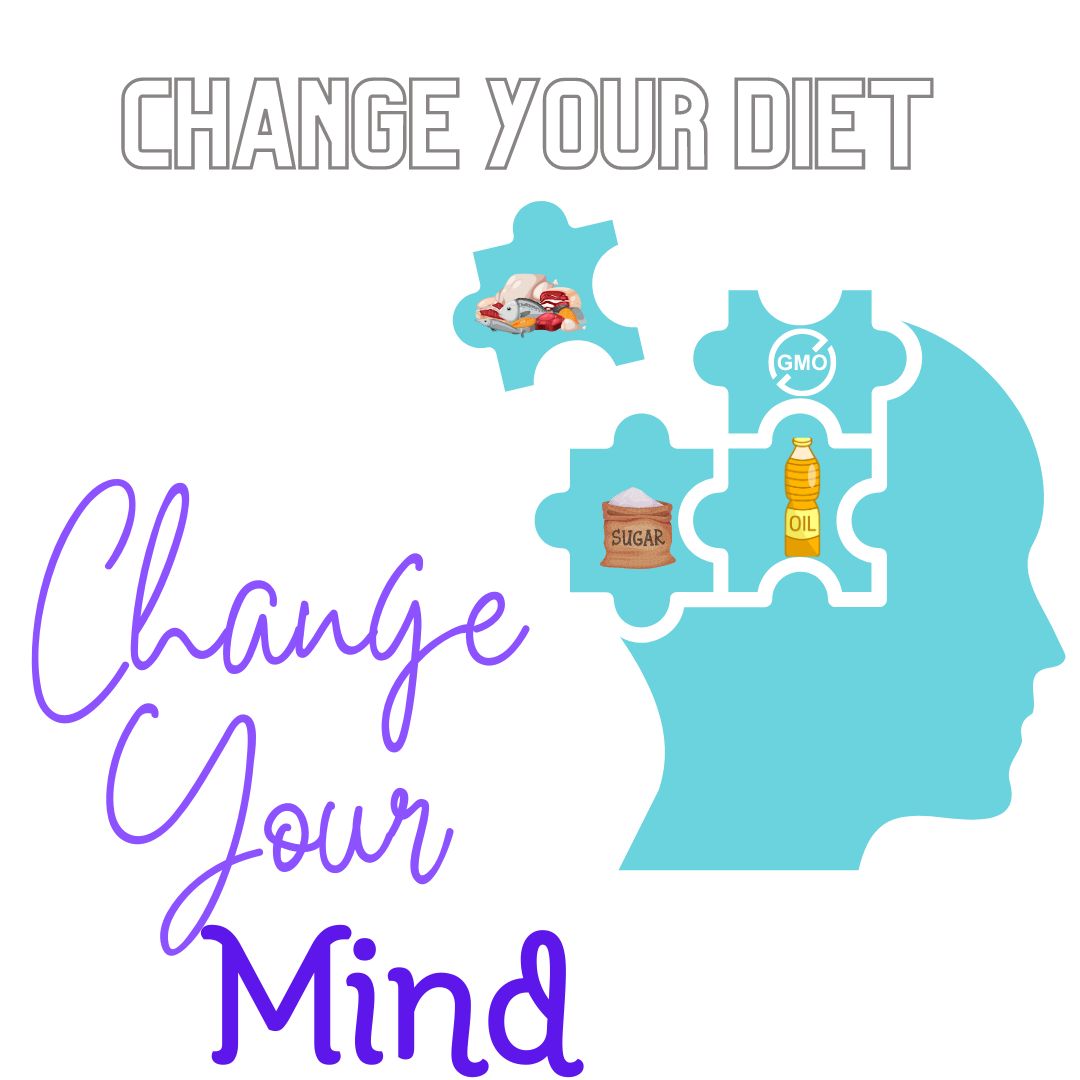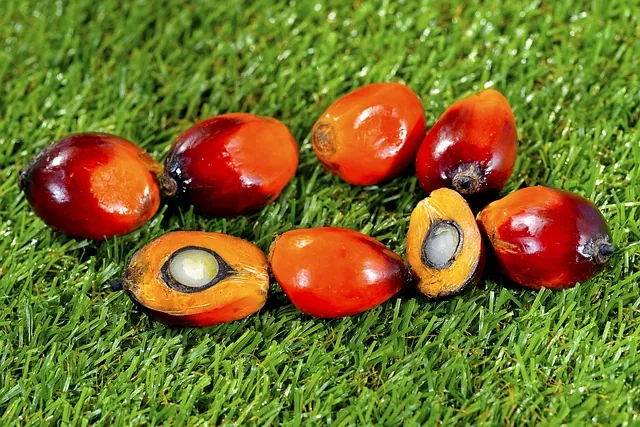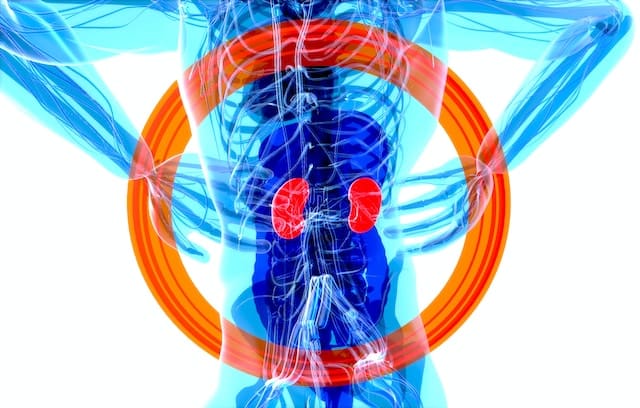Key Highlights
- Increasing protein intake, incorporating healthy fats, and consuming probiotics can help in losing belly fat.
- Managing stress levels, optimizing sleep quality, and eliminating alcohol consumption are also important factors in reducing belly fat.
- Eliminating carbohydrates, sugar-sweetened beverages, and plant-based foods high in anti-nutrients can aid in belly fat loss.
- Engaging in high-intensity interval training (HIIT), resistance training, and practicing mindful eating habits are effective strategies for losing belly fat.
- Intermittent fasting, and consuming green tea can also contribute to belly fat reduction.
Table of Contents
Losing belly fat is essential not just for appearance but for health, as it’s linked to risks like type 2 diabetes and heart disease. While you can’t target belly fat directly, combining diet, exercise, stress reduction, and lifestyle changes can lead to overall fat loss.
Various science-supported steps can significantly impact belly fat reduction and boost overall health.
1. Increase High-Quality Animal Protein Intake
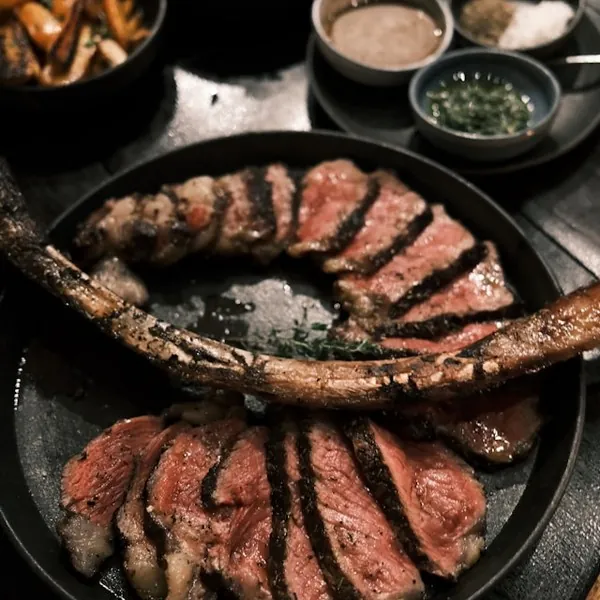
Boosting your diet with high-quality animal proteins, like meats, fish, eggs, and dairy, can significantly aid in belly fat loss. Protein is the most filling nutrient, helping to curb appetite and cut down on calories. It also supports muscle building and maintenance, ramping up your metabolism to burn more calories.
These foods not only contribute to muscle growth and maintenance for a leaner midsection but also support overall weight loss efforts. Incorporate a variety of these protein sources into your meals to optimize fat loss and improve your health, aligning with strategies like the Mediterranean diet for effective results.
2. Incorporate Healthy Fats into Your Diet
Including healthy fats in your diet, contrary to old myths, can actually aid in losing belly fat. Foods rich in unsaturated fats, like avocados, nuts, seeds, and fatty fish, offer numerous benefits. They’re packed with omega-3 and omega-6 fatty acids, reducing inflammation and boosting heart and brain health. These fats increase fullness, helping manage calorie intake by preventing overeating.
They also aid in absorbing vital fat-soluble vitamins. To leverage these benefits, incorporate avocados into salads, cook with olive oil, snack on nuts and seeds, and enjoy fatty fish regularly. This approach not only supports fat loss but also enhances overall health.
3. Consume Probiotics for Gut Health
A healthy gut plays a crucial role in overall well-being and can aid in losing belly fat. Probiotics, the beneficial bacteria promoting gut health, are key to this process, improving digestion, easing inflammation, and supporting a healthy weight. Here’s how probiotics can help:
- Restore Gut Balance: Probiotics replenish good bacteria in the gut, which might be diminished by poor diet, stress, or antibiotics.
- Boost Nutrient Absorption: A balanced gut microbiome ensures better nutrient uptake, aiding weight management.
- Target Belly Fat: Some probiotics, like Lactobacillus and Bifidobacterium strains, are linked to reduced belly fat and enhanced metabolic health.
- Probiotic-Rich Foods: Yogurt, kefir, sauerkraut, and kimchi are great for increasing your intake of these beneficial bacteria.
- Supplements: For those struggling to get enough from food, probiotic supplements are an option.
Incorporating probiotics into your diet through either foods or supplements can bolster gut health and may help trim belly fat, among other health benefits.
4. Manage and Reduce Stress Levels

Stress can significantly impact belly fat by triggering cortisol release, which increases appetite and fat storage in the abdominal area. To combat stress-related belly fat, consider these strategies:
- Adopt Stress-Reduction Techniques: Engage in meditation, deep breathing, or yoga to calm the mind and reduce stress levels.
- Stay Active: Exercise is a powerful stress reliever that also enhances mood.
- Embrace Self-Care: Activities like baths, nature walks, or enjoying hobbies can promote relaxation and well-being.
- Seek Support: If stress feels overwhelming, don’t hesitate to reach out to friends, family, or professionals for help.
Actively managing stress not only supports mental health but can also help in reducing belly fat, enhancing your overall health journey.
5. Optimize Your Sleep Quality and Duration
Quality sleep is a pillar of health, crucial for managing weight and reducing belly fat. Poor sleep can lead to increased hunger, unhealthy cravings, and weight gain. Here’s how to enhance your sleep quality to aid belly fat loss:
- Regular Sleep Schedule: Stick to consistent sleep and wake times, even during weekends, to regulate your body’s clock.
- Relaxing Bedtime Routine: Engage in calming activities before bed, like reading or a warm bath, to signal your body it’s time to sleep.
- Optimize Your Sleep Environment: Ensure your bedroom is cool, dark, and quiet for optimal sleep conditions.
- Limit Screen Time: Reduce exposure to the blue light from electronics before bed, as it can disturb sleep.
- Watch Your Intake: Avoid caffeine and other stimulants in the evening to prevent sleep disruptions.
Making sleep a cornerstone of your daily routine can significantly aid in managing weight and cutting down on belly fat.
6. Eliminate Alcohol Consumption
Cutting out alcohol can be a key step in losing belly fat and enhancing weight loss efforts, due to several factors:
- Calorie Content: Alcohol is rich in calories, contributing to increased daily intake and, consequently, weight and belly fat gain.
- Liver Health: Regular alcohol consumption can impair liver function, risking liver disease and promoting visceral fat storage.
- Sleep Quality: Alcohol can negatively affect sleep patterns, impacting metabolic health and hindering weight management.
- High-Calorie Mixers: Drinks often include sugary mixers or are paired with calorie-dense snacks, boosting calorie consumption further.
Consulting a healthcare provider about alcohol intake can provide personalized advice for better health and weight management strategies.
7. Eliminate High Carbohydrate Foods

Cutting carbohydrate intake, particularly refined carbs, is a powerful strategy for shedding belly fat. Here’s why cutting carbs can be beneficial:
- Blood Sugar Spikes: Refined carbs like white bread and sugary snacks cause rapid increases in blood sugar, leading to spikes in insulin.
- Insulin and Fat Storage: These insulin spikes encourage fat storage, notably around the abdomen.
- Insulin Resistance: High-carb diets can lead to insulin resistance, where the body’s cells don’t respond well to insulin, exacerbating fat storage and making weight loss harder.
- Evidence of Effectiveness: Lowering carb intake has been shown to significantly help in losing abdominal fat, benefiting those overweight, at risk of type 2 diabetes, or with PCOS.
In short, minimizing consumption of carbohydrates can play a crucial role in reducing belly fat and improving overall health.
8. Eliminate Sugar-Sweetened Beverages
Removing sugar-sweetened beverages is key to losing belly fat, due to several reasons:
- Empty Calories: Drinks like soda, fruit juices, and energy drinks pack many calories but don’t fill you up, leading to higher overall calorie intake.
- Blood Sugar Spikes: These beverages cause rapid increases in blood sugar and insulin, which encourages fat storage around the abdomen.
- Linked to Obesity: Regular consumption of sugary drinks is tied to a higher risk of obesity, type 2 diabetes, and other chronic conditions.
Opting for water or calorie-free drinks instead can help lower your calorie consumption, aiding in weight management and belly fat reduction.

9. Avoid High Anti-Nutrient Foods
While plant-based foods are generally beneficial, those high in anti-nutrients may impede nutrient absorption and even contribute to belly fat. Here’s why avoiding such foods can help in belly fat reduction:
- Nutrient Blockers: Anti-nutrients like phytic acid and lectins can bind to essential minerals (iron, calcium, zinc), blocking their absorption.
- Nutrient Deficiencies: Hindered nutrient absorption can lead to deficiencies, potentially affecting health and weight, including increased belly fat.
- Digestive Discomfort: Some people may find foods high in anti-nutrients cause digestive issues or inflammation, contributing to weight gain.
Enhancing nutrient absorption involves minimizing plant foods and using preparation methods like soaking, fermenting, or cooking to decrease anti-nutrients, thereby supporting belly fat loss and overall health.
10. Create a Sustainable Caloric Deficit
A sustainable caloric deficit is crucial for effectively losing belly fat. Here’s why and how to achieve it:
- Basics of Weight Loss: You need to burn more calories than you consume, using a mix of reduced intake and increased activity, to lose fat.
- Importance of Sustainability: Crash diets or severe restrictions are unsustainable, potentially causing nutrient deficits, muscle loss, and metabolism slowdown.
- Safe Weight Loss Rate: Aim for a gradual loss of 1-2 pounds per week, equivalent to a daily deficit of 500-1000 calories, to ensure it’s both safe and sustainable.
- Practical Steps: Monitor your calorie intake, make smart food choices, and adjust portions. Consulting a nutrition expert can help tailor a deficit plan to your needs, ensuring long-term success and health.
Achieving a balanced caloric deficit not only aids in reducing belly fat but also supports overall health and weight maintenance.
11. Stay Hydrated with electrolytes and trace minerals

Hydration is key not only for overall health but also for aiding in belly fat loss. Here’s why incorporating water, electrolytes, and trace minerals into your daily routine can make a difference:
- Electrolyte Balance: Electrolytes like sodium, potassium, and magnesium are crucial for fluid balance and support metabolic health.
- Boosts Metabolism: Adequate hydration is essential for a healthy metabolism, playing a significant role in weight and fat management.
- Promotes Satiety: Drinking water before meals can lead to increased fullness, reducing the likelihood of overeating.
- Essential for Energy: Trace minerals, including zinc and selenium, are important for energy production and metabolism, influencing weight management.
- Hydration Goal: Aim for 8-10 cups (64-80 ounces) of water daily. Incorporating electrolyte-rich beverages can enhance hydration and support your metabolism.
Listening to your body and staying adequately hydrated can significantly contribute to losing belly fat and maintaining optimal health.
12. Engage in High-Intensity Interval Training (HIIT)
High-intensity interval training (HIIT) is a powerful tool for shedding belly fat due to its efficiency and effectiveness. Here’s why HIIT is beneficial for fat loss:
- Time-Efficient Workouts: HIIT allows for shorter exercise times while delivering significant health and weight loss benefits.
- Boosts Metabolism: These workouts elevate calorie burn and fat oxidation during and after exercise, aiding in more substantial fat loss.
- Improves Health Markers: HIIT enhances insulin sensitivity and cardiovascular fitness, contributing to better metabolic health.
- How to Start: Begin with activities like sprinting, cycling, or bodyweight exercises. Introduce shorter intervals at first, then increase intensity and duration over time. Always get a healthcare professional’s green light before embarking on high-intensity workouts, especially if you have health concerns.
Incorporating HIIT into your routine can be a game-changer for losing belly fat and improving your overall fitness.
13. Incorporate Resistance Training into Your Routine

Resistance training is a key player in the battle against belly fat, thanks to its ability to enhance body composition and boost muscle strength. Here’s why it’s effective:
- Boosts Metabolism: Building lean muscle through resistance training increases your resting metabolic rate, helping burn more fat.
- Enhances Insulin Sensitivity: More muscle mass improves your body’s ability to use glucose, lowering the risk of insulin resistance and diabetes.
- Improves Physical Fitness: It strengthens your body, improving your overall mobility, functional fitness, and quality of life.
To get started, working with a fitness professional can help you create a customized plan. Focus on compound movements like squats and deadlifts to engage multiple muscle groups, starting with lighter weights and progressively challenging yourself as you grow stronger.
14. Practice Mindful Eating Habits
Mindful eating is a transformative approach to reducing belly fat, encouraging healthier eating behaviors and greater awareness of hunger cues. Here’s how you can practice it effectively:
- Listen to Your Body: Eat when hungry and stop when full, avoiding eating just because you’re bored or emotional.
- Enjoy Every Bite: Slow down your eating pace, chew thoroughly, and truly appreciate the taste and texture of your food.
- Minimize Distractions: Eat away from electronics and other distractions to focus on your meal and how it makes you feel.
- Choose Wisely: Opt for foods rich in nutrients that align with your health goals, adding value to your diet.
- Watch Portions: Use smaller dishes to naturally reduce portion sizes and be mindful of the amount you eat, especially when dining out.
Embracing mindful eating can help you make healthier choices, enjoy your meals fully, and contribute to losing belly fat.
15. Consider Intermittent Fasting Methods
Intermittent fasting (IF) is a strategic eating pattern that alternates between fasting and eating phases, offering a novel approach to belly fat reduction and metabolic improvements. Here’s what to keep in mind:
- Calorie Deficit: IF helps limit eating times, naturally reducing calorie intake and aiding weight loss.
- Enhances Fat Burning: Fasting periods boost fat burning and insulin sensitivity, which can help diminish belly fat and enhance metabolic health.
- Various Methods: Popular IF methods include the 16:8 approach (16 hours of fasting with an 8-hour eating window) and alternate-day fasting, catering to different preferences and lifestyles.
- Not for Everyone: IF might not suit everyone, particularly individuals with certain health conditions or those with a history of eating disorders. Always consult a healthcare provider before beginning an IF regimen.
Intermittent fasting can be a powerful tool for losing belly fat and improving health, provided it fits your lifestyle and is approved by a healthcare professional.
16. Green Tea and Herbs
Green tea is celebrated for its metabolic benefits and potential role in aiding belly fat loss, thanks to its rich content of antioxidants and caffeine. Here’s why adding green tea to your daily routine can help:
- Boosts Metabolism: The catechins in green tea enhance fat oxidation and metabolism, helping your body to burn fat more efficiently.
- Increases Fat Burning: Its caffeine content aids in increasing energy expenditure and fat burning, further supporting weight loss efforts.
- Improves Insulin Sensitivity: Regular consumption of green tea is linked to better insulin sensitivity, lowering the risk of type 2 diabetes and influencing belly fat reduction.
For best results, aim for 2-3 cups of green tea daily. Brew with hot (not boiling) water to maximize the extraction of beneficial antioxidants. Remember, green tea is most effective when consumed as part of a healthy diet and lifestyle.

Matcha (more potent ground green tea) is a powerful source of the antioxidant EGCG, which boosts metabolism and increases the body’s ability to break down and burn fat. The presence of caffeine in matcha can also enhance thermogenesis and improve mood, which may lead to more successful weight loss efforts.
Dandelion has a natural diuretic effect, helping the body eliminate excess fluids and reduce bloating. This herbal tea may also support healthy digestion, making it an effective addition to reducing waist circumference.
Turmeric, a popular spice known for its anti-inflammatory properties, contains curcumin, which may help block the formation of fat cells and aid in visceral fat reduction.
Cayenne pepper gets its heat from capsaicin, a compound that has been linked to increased fat burning and appetite suppression. Adding cayenne pepper to meals can help to kickstart the body’s metabolism and burn more calories.
Cinnamon helps regulate blood sugar levels and reduce insulin resistance, both of which can contribute to more efficient fat burning and weight loss goals. Incorporating cinnamon into a daily diet can help stabilize energy levels and reduce cravings.
17. Combine Strategies with supplements
Combining various strategies into a comprehensive lifestyle approach is key to effectively losing belly fat. Here’s a summary of interventions that can enhance your results:
| Supplement/Nutrient | Function/Benefits | Sources |
| Magnesium | Crucial for countless metabolic processes | Dark Chocolate, Magnesium Glycinate |
| Copper | Helps convert food into energy | Whole Food Vitamin C Complex, Goat / Beef Liver, Bee Pollen |
| Vitamin B12 | Supports energy production | Liver, Nutritional Yeast |
| Iodine | Essential for thyroid function | Kelp |
| Zinc | Assists in protein synthesis and cellular metabolism | Shellfish |
| Glucomannan | Appetite suppressant; low in calories. | Miracle Noodles |
| Acetic Acid | May reduce blood glucose levels and promote fullness. | Apple Cider Vinegar |
| Chromium | Could manage blood sugar levels and reduce hunger. | Chromium Picolinate |
| Medium Chain Triglycerides | Supports fat burning and reduces hunger. | MCT Oil |
| Antihyperlipidemic Prebiotic Mucilage | Promotes gut health and potentially reduces waist circumference. | Seamoss |
Conclusion
Incorporating science-backed strategies into your routine can help you effectively lose belly fat. Remember, consistency is key. By making sustainable lifestyle changes, such as optimizing sleep, managing stress, and incorporating high-quality proteins, fats, you can achieve your desired results. It’s essential to create a caloric deficit and engage in regular exercise to support your journey.
Stay hydrated, be mindful of your food choices, and consider different approaches like intermittent fasting. Taking a holistic approach by combining various strategies ensures the best outcomes for your health and fitness goals.
Biotiquest
Sugar Shift
- Transforms excess sugars into mannitol, which the body naturally eliminates, reducing inflammation.
- It enhances gut mannitol production, preventing harmful protein buildup.
- Increases butyrate production, improving gut and brain health.
Frequently Asked Questions
What Is the Most Effective Diet for Losing Belly Fat?
The most effective diet for losing belly fat is one that combines a caloric deficit, balanced macronutrient intake, and a focus on whole, nutrient-dense foods. Some popular diets that can support belly fat loss include a Mediterranean-style diet, the DASH diet, and the ketogenic diet.
Can You Lose Belly Fat Without Exercise?
While exercise can support belly fat loss and overall weight management, it is possible to lose belly fat without exercise by focusing on creating a sustainable caloric deficit through diet alone. However, incorporating regular physical activity can enhance results and promote overall health.
How Long Does It Take to Notice Reduction in Belly Fat?
The time it takes to notice a reduction in belly fat can vary depending on individual factors such as starting weight, body composition, and lifestyle habits. Sustained weight loss efforts, including a balanced diet and regular exercise, can lead to noticeable belly fat reduction over time.
Are There Any Quick Fixes for Losing Belly Fat?
There are no quick fixes for losing belly fat. Sustainable weight loss and belly fat reduction require long-term lifestyle changes, including a balanced diet, regular exercise, stress management, and adequate sleep. Quick fixes or crash diets are not sustainable and can lead to negative health consequences.
How Important Is Sleep in the Process of Losing Belly Fat?
Sleep plays a crucial role in the process of losing belly fat. Lack of sleep or poor sleep quality can disrupt hormones involved in appetite regulation, increase hunger and cravings, and negatively impact metabolic health, leading to weight gain and increased belly fat.
Can Stress Affect Belly Fat Loss?
Stress can affect belly fat loss by increasing cortisol levels, a stress hormone that promotes fat storage, particularly in the abdominal area. Chronic stress can lead to increased appetite, cravings for unhealthy foods, and difficulty losing weight, including belly fat.
Research
Boutcher SH. High-intensity intermittent exercise and fat loss. J Obes. 2011;2011:868305.. Epub 2010 Nov 24. PMID: 21113312; PMCID: PMC2991639.
doi: 10.1155/2011/868305
Choudhary, B., Chauhan, O.P. and Mishra, A., 2021. Edible Seaweeds: A Potential Novel Source of Bioactive Metabolites and Nutraceuticals With Human Health Benefits. Frontiers in Marine Science, [online] 8.
https://doi.org/10.3389/fmars.2021.740054.
DiNicolantonio, J. J., & Wilson, W. (2017). Review: Subclinical magnesium deficiency: a principal driver of cardiovascular disease and a public health crisis. Open Heart, 5(1).
https://doi.org/10.1136/openhrt-2017-000668
El-Zayat, S.R., Sibaii, H. and El-Shamy, K.A., 2019. Physiological process of fat loss. Bulletin of the National Research Centre, 43(1), pp.1-15.
https://bnrc.springeropen.com/articles/10.1186/s42269-019-0238-z
Farnsworth E, Luscombe ND, Noakes M, et al. Effect of a high-protein, energy-restricted diet on body composition, glycemic control, and lipid concentrations in overweight and obese hyperinsulinemic men and women. Am J Clin Nutr 2003; 78: 31-39
https://pubmed.ncbi.nlm.nih.gov/12816768/
Grotto D, Zied E. The Standard American Diet and its relationship to the health status of Americans. Nutr Clin Pract. 2010 Dec;25(6):603-12.
https://pubmed.ncbi.nlm.nih.gov/21139124/
Han, J. R., Deng, B., Sun, J., Chen, C. G., Corkey, B. E., Kirkland, J. L., Ma, J., & Guo, W. (2007). Effects of dietary medium-chain triglyceride on weight loss and insulin sensitivity in a group of moderately overweight free-living type 2 diabetic Chinese subjects. Metabolism, 56(7), 985-991.
https://doi.org/10.1016/j.metabol.2007.03.005
Hjorth, M., Roager, H., Larsen, T. et al. Pre-treatment microbial Prevotella-to-Bacteroides ratio, determines body fat loss success during a 6-month randomized controlled diet intervention. Int J Obes 42, 580–583 (2018).
https://doi.org/10.1038/ijo.2017.220
Josse, A.R., Atkinson, S.A., Tarnopolsky, M.A. and Phillips, S.M., 2011. Increased consumption of dairy foods and protein during diet-and exercise-induced weight loss promotes fat mass loss and lean mass gain in overweight and obese premenopausal women. The Journal of nutrition, 141(9), pp.1626-1634.
https://doi.org/10.3945/jn.111.141028
Knufinke, M., Nieuwenhuys, A., Geurts, S.A., Coenen, A.M. and Kompier, M.A., 2018. Self‐reported sleep quantity, quality and sleep hygiene in elite athletes. Journal of sleep research, 27(1), pp.78-85.
https://pubmed.ncbi.nlm.nih.gov/28271579/
Kondo, T., Kishi, M., Fushimi, T. and Kaga, T., 2009. Acetic acid upregulates the expression of genes for fatty acid oxidation enzymes in liver to suppress body fat accumulation. Journal of agricultural and food chemistry, 57(13), pp.5982-5986.
https://pubmed.ncbi.nlm.nih.gov/19469536/
Krieger JW, Sitren HS, Daniels MJ, et al. Effects of variation in protein and carbohydrate intake on body mass and composition during energy restriction: a meta-regression 1. Am J Clin Nutr 2006; 83: 260-274.
https://pubmed.ncbi.nlm.nih.gov/16469983/
McCarty MF. Optimizing exercise for fat loss. Med Hypotheses. 1995 May;44(5):325-30.
doi: 10.1016/0306-9877(95)90258-9. PMID: 8583962.
Miriam E. Clegg (2010) Medium-chain triglycerides are advantageous in promoting weight loss although not beneficial to exercise performance, International Journal of Food Sciences and Nutrition, 61:7, 653-679,
DOI: 10.3109/09637481003702114
Morgan, J. and Mosawy, S., 2016. The potential of apple cider vinegar in the management of type 2 diabetes. International Journal of Diabetes Research, 5(6), pp.129-34.
Pasiakos SM, Mettel JB, West K, et al. Maintenance of resting energy expenditure after weight loss in premenopausal women: potential benefits of a high-protein, reduced-calorie diet. Metabolism 2008; 57: 458-464.
Santos, H.O., de Moraes, W.M., da Silva, G.A., Prestes, J. and Schoenfeld, B.J., 2019. Vinegar (acetic acid) intake on glucose metabolism: A narrative review. Clinical nutrition ESPEN, 32, pp.1-7.
Seip RL, Volek JS, Windemuth A, Kocherla M, Fernandez ML, Kraemer WJ, Ruaño G. Physiogenomic comparison of human fat loss in response to diets restrictive of carbohydrate or fat. Nutr Metab (Lond). 2008 Feb 6;5:4. doi: 10.1186/1743-7075-5-4.
Stiegler P, Cunliffe A. The role of diet and exercise for the maintenance of fat-free mass and resting metabolic rate during weight loss. Sports Med 2006; 36: 239-262
https://pubmed.ncbi.nlm.nih.gov/16526835/
Volek J, Sharman M, Gómez A, Judelson D, Rubin M, Watson G, Sokmen B, Silvestre R, French D, Kraemer W. Comparison of energy-restricted very low-carbohydrate and low-fat diets on weight loss and body composition in overweight men and women. Nutr Metab (Lond). 2004 Nov 8;1(1):13.
doi: 10.1186/1743-7075-1-13.
Whitfield, P., Parry-Strong, A., Walsh, E. et al. The effect of a cinnamon-, chromium- and magnesium-formulated honey on glycaemic control, weight loss and lipid parameters in type 2 diabetes: an open-label cross-over randomised controlled trial. Eur J Nutr 55, 1123–1131 (2016).
https://doi.org/10.1007/s00394-015-0926-x



